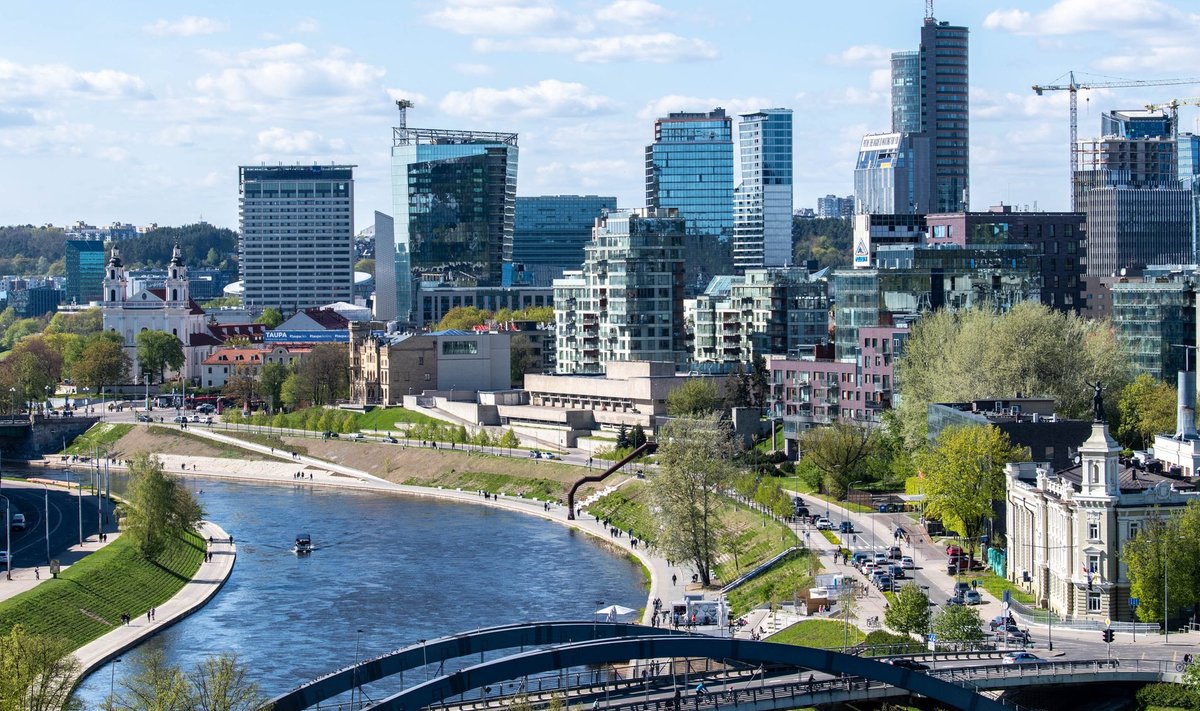Changes are welcome, but priorities remain the same
According to Austeja (name changed, real name known to DELFI), stuff keeps breaking in the flat that she has been renting with a friend for a couple of years now. Its condition is anything but good, compared to the flats that her friends live in and pay the same rent. Austeja said that although various failures and other technical problems truly were maddening, the worst thing was the fact that not even the smallest expectations had been met. For example, initially the owner of the flat had promised small utility bills, but eventually that turned out to be a lie.
“Sometimes we pay bills accrued for several months, because we have agreed that the owner pays everything and sends us the total amount later. Usually, he wants to receive the money within several days, and this flat’s utilities are really expensive, so we, as students, sometimes have to sacrifice something to cover the bills, especially during the cold season,” she said.
She has been living in the same flat for three years and, at least for now, has no plans to move out. Austeja admitted that changes would be welcome, but the flat is in a convenient location. What is more, currently the rental prices are so high that she simply wouldn’t be able to afford another flat.
“Well, the location side is no longer that important. Currently, we’d love a flat closer to the centre – it would be easier to go to work, but the prices are really high now, and there aren’t enough decent options in terms of quality/price ratio,” she shared.
Being a student is not easy
Coming face-to-face with the hardships of student life, students often admit that surviving in a big city, even with the help of parents, is getting more and more difficult. For this reason, students are forced to work long and gruelling hours – to the detriment of grades and quality of rest. Austeja, who is in her third year of studies, agreed regarding the difficulties to make ends meet, but said she always found motivation to remain strong in such situations.
“Yes, it is hard, but I am civic, I really enjoy living in Lithuania; therefore, I’m always looking for solutions to stay here. People in my circle share the same views, but students often travel abroad to work during the summer. They say they get paid way more for the same work than in Lithuania,” Austeja noted.
Her experience is similar to that of many fellow students.
“You work a lot, get little sleep, and have even less time for rest and hobbies, because you also need to study. Obviously, the grades suffer, but there’s no other choice, you need to make it work somehow and you do. The prospect that someday this unpleasant experience will end and you will be able to live a more comfortable life helps. By balancing my time between work and studies and sacrificing certain things, I’m slowly moving towards this goal,” the student said.
The youth shared their opinions
DELFI has asked its young readers whether living in a big city is challenging for students and maybe is even becoming a privilege of the rich. The survey is ongoing, but intermediary results show that as many as 75% of the respondents believe that today studies are becoming available only to the rich. This is due to difficult living conditions in a big city.
You don’t need a PhD in mathematics to realize that student life in Vilnius or Kaunas is expensive. If they don’t get a dormitory room, some students may even find it impossible to study there, especially if their parents live in a smaller town and get minimum or barely higher wages. Since the beginning of the year, rent prices have increased by 20% in Vilnius and by about 13% in Kaunas.
The average (median) rent price in Vilnius in July was EUR 600. That’s 9% higher than in June.
Whereas in Kaunas the average rent price hasn’t changed much. In July, the average price was EUR 450.
Difficult without parents’ help
Speaking on the show Delfi Diena (Delfi Day), the Lithuanian National Union of Students’ president Paulius Vaitiekus claimed that today it was impossible for students to study in another city without a job or financial help from relatives. Incentive scholarships for the best performing students are so small that they barely cover the rent of the cheapest dormitory room.
“It is very sad, but a student who does not receive financial support from his/her relatives will have a hard time trying to support themselves. Considering the fact that incentive scholarships start from a measly EUR 60 and pretty much cover only the rent of a dormitory room, it is really difficult for students to support themselves. One of the options is financial help from relatives, but research shows that the majority of students work. Work to be able to make ends meet during the studying period,” Vaitiekus stressed.
Some dormitories offer accommodation from EUR 50 a month, but there aren’t enough cheapest rooms for everyone.
“The prices are rising, some universities are asking as much as EUR 200–300 for a room. Obviously, the price depends on the type of room: single of double. But the problem is the very limited number of the cheapest rooms. Unfortunately, not everyone can get the most affordable room,” he added.
Some parents and students think that the state should lend a helping hand and allocate more funds to universities, which would in turn increase the number of students eligible for incentive scholarships or offer free dormitory accommodation for students from other cities. This would be a manifestation of citizenship and assistance. Otherwise it may seem that higher education soon won’t be accessible to everyone. Is higher education becoming a privilege of the rich? We will discuss this matter in other My impact publications.
